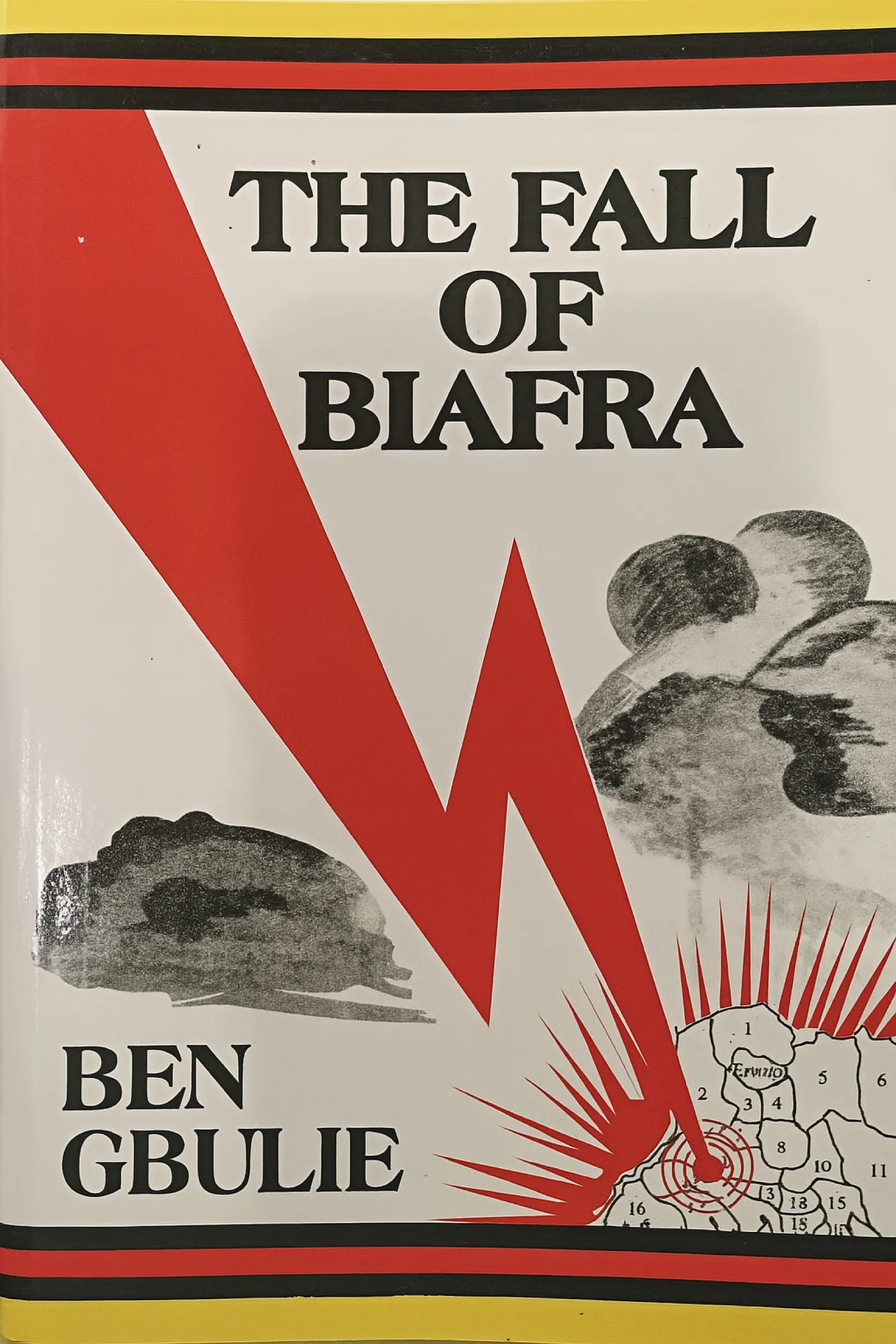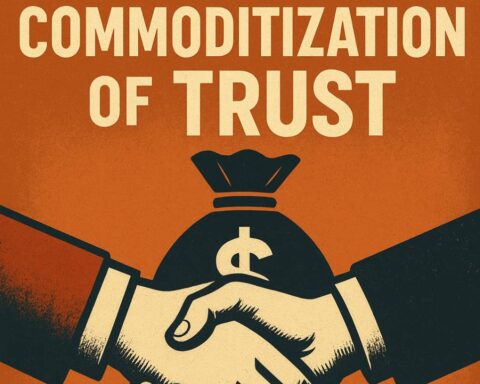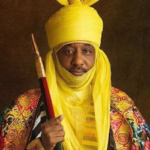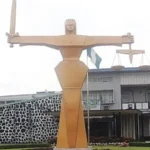By Agbeze Ireke Kalu Onuma, AI-KO
“I sat stoned. Lost. Confused.” – AI-KO [Diary entry after reading “The Death of Biafra]
That was where I began. That is the only honest way to start this. I did not come to Ben Gbulie’s “The Fall of Biafra” to write a report. I came to it as a seeker, chasing a ghost that has always lived in my house. The ghost of a war that ended while I was a child, but whose shadow has shaped everything – the unspoken words in my family, the certain sadness in our Elders eyes when old friends visit, the feeling of a history that is a heavy, uncomfortable weight. After a long search, I finally held this book, and it was not what I expected. It was a confrontation. It was a mirror held up to a past I thought I knew, and it showed me something raw, ugly, and heartbreakingly human.
To truly understand the weight of the story told in The Fall of Biafra, one must first know the man who carried it for so long. Benjamin Adesina Gbulie was not merely an author; he was a Nigerian military officer, an administrator, and a direct participant in the very history he would later chronicle. Ben Gbulie was born in Nimo, a town in Njikoka Local Government Area of Anambra State, Nigeria. This region was part of the former Eastern Region of Nigeria, which later became the heartland of the…
That testimony, The Fall of Biafra, is far more than just a book; it is a reckoning. Published in 1989 by Benlie Publishers, this 322-page volume is the product of nearly two decades of reflection, a period that allowed tempers to cool and wounds to form scars before he put pen to paper. The result is not an academic history but a visceral, personal narrative written with precision and a deep moral urgency. Gbulie writes as a man who bore witness, offering an unflinching look at the betrayals, breakdowns, and human tragedies that defined the end of Biafra. His account is unique precisely because of his proximity to power; he knew the generals and the politicians, he saw the decisions being made and witnessed their devastating consequences firsthand. He writes with an emotional honesty that refuses to spare anyone, including himself, naming names and critiquing leadership failures with the authority of someone who was there. With chapters delving into military operations, political maneuverings, and the immense human cost, and supplemented with documents like Biafra’s national anthem and lists of detainees, the book stands as both a gripping personal memoir and an invaluable historical document, ensuring that the complex truth of those years would not be forgotten.
I am reading this book long after the death of the author, a man I met several times. In the early 2000s, at various Ohanaeze meetings and during the Oputa Panel in Abuja, Ben Gbulie was a presence. He was not a flamboyant figure. He was simple, easygoing, but he always appeared to me to be carrying a weight far too heavy for his shoulders. His words didn’t carry the magnetic, theatrical pull of an orator like Senator Uche Chukwumerije, whom Gbulie himself mentions in his book. What stood out for me was something quieter, something more profound: he spoke with a raw, unshakable conviction. He was a man who had seen something, and the memory of it was a burden he carried in his eyes and in the set of his jaw.
Years later, I have now read his book, and I can finally put a voice to the words and visualize the man as I read. The experience is utterly transformed. This is no longer an abstract history; it is the testimony of the quiet, burdened man I once shared a room with. The tales he narrated were painful in a lot of places, but reading them now, I understand the source of that weight he carried. The book shows in graphic detail the inner workings of the Biafran nation at the peak of the war and towards the end, and it is clear that Gbulie was not just a witness but a custodian of a painful truth. He was haunted by the details – the specific excuses of a cowardly officer, the exact location of a collapsed bridge, the precise look on a general’s face as he directed traffic. This book was his way of setting that burden down, of passing the memory to us, and now, holding it, I feel its immense gravity.
Knowing the man, even slightly, changes how I read his critiques. This is not the bitterness of a sidelined officer, but the solemn duty of a witness. When he writes about the failures of General Madiebo or the betrayals of the elites, I hear the voice of that conviction I saw in Abuja. He is not interested in sensationalism; he is committed to an excruciating accuracy. He makes you feel the texture of the collapse – the chaos of the retreat, the desperation of the refugees, the stifling atmosphere of a command structure rotting from within. To have met him is to understand that this book is his final, and most important, act of service to the truth of what happened. He carried this story for decades, and now, through these pages, he passes that weight to me, to us.
Gbulie does not write to comfort you. He writes to dissect. As a military officer who was right there in the thick of it, his job is to open up the body of the Biafran dream and show you all the organs that failed. He shows you the political miscalculations, the tribal tensions, the big egos, and the small, quiet acts of cowardice that, added together, caused everything to fall apart. Reading him, I did not feel like I was learning history. I felt like I was watching an autopsy on something I loved, and it left me confused and hollow. I found myself asking questions that had no easy answers: How could this have happened? Why did we fail? What does this say about us, about leadership, and about the cost of a dream?
To understand how we got there, you have to go back, beyond the first shot, to the very creation of Nigeria itself. The British colonial administration, in its cynical and clumsy partitioning, jostled together three mutually antagonistic major nations – the Hausa-Fulani in the north, the Yoruba in the west, and the Igbo in the east – into one artificial entity. They laid a foundation of ethnic suspicion and structural imbalance that would inevitably crack. The immediate trigger was the 1966 pogroms, the horrific massacres of tens of thousands of Igbos in the north, which sent over a million terrified survivors fleeing back to their eastern homeland. This was not just political instability; it was a visceral, bloody trauma that made the quest for a safe haven, for Biafra, a matter of survival. The discovery of rich oilfields in the Igbo-dominated Port Harcourt region just a year before secession only poured fuel on the simmering fire, making the federal government less willing to let the region go and external powers more interested in the outcome.
The heart of his story, for me, is the fall of Aba. It was more than a city; it was a symbol. A busy, commercial heartland that was supposed to hold. But Gbulie shows us that cities don’t fall just from outside attacks. They collapse from the inside. He describes a situation so chaotic it is hard to even picture it. Shells falling everywhere, cutting down people at random. Soldiers, the very men meant to defend the land, pouring out of their positions, fleeing. They were not just retreating; they were breaking. They shed their uniforms, threw away their weapons, and melted into the crowds of terrified refugees. All of them were surging towards the Udoh bridge, the only way out. That bridge became a powerful picture in my mind – not a structure of concrete, but a last, choked artery for a dying nation.
In the middle of this madness, where was the leadership? Gbulie writes that he “searched fruitlessly for the GOC,” the General Officer Commanding. That word, “fruitlessly,” says it all. There was no one at the wheel. So he took it upon himself to drive through the “formidable traffic jam” to warn a hospital filled with wounded soldiers. When he got there and found they were already being evacuated, he thought, “I ought to have spared myself all the trouble.” That sentence is so heavy with exhaustion. Yet, even then, he found a small purpose, noting the trip gave him “the opportunity to deal with some stragglers.” This is what the war had been reduced to: not grand battles, but the sad, slow work of gathering broken men.
The most devastating moment comes later that day. After Aba was already lost, Gbulie finally found the GOC, Major-General Alexander Madiebo. And where was he? Not in a command post, not rallying troops. He was on the far bank of the Imo River, “jostling, yelling and gesticulating” in a swelling crowd of refugees, trying to direct traffic. Gbulie writes, “The sight of him nearly drew me close to tears.” And reading that, I felt my own heart break. This was the man who commanded the entire Biafran Army, reduced to a traffic warden. It was the final, perfect picture of the collapse. The leader was not leading; he was swallowed by the chaos, a tragic copy of what a general should be.
But the collapse was not only in the field. It was also in the council chambers, in the very rooms where the fate of our nation was being decided. As I read Gbulie’s accounts of the emergency meetings, the frantic nocturnal movements, and the debilitating confusion that gripped the top generals, I felt a strange duality. On one hand, I was kind of lost, overwhelmed by the sheer scale of the dysfunction. But on the other, I felt a piercing, almost illicit clarity. I was, through his eyes, gazing into the inner workings of a country I was a citizen of for three and a half years of my life. What today is dramatized, romanticized in songs and wistful stories, was, in Gbulie’s unsparing record, a waking nightmare.
He describes one high-level meeting, chaired by the revered Akanu Ibiam, with Mbanefo, Ojukwu, and the entire Biafran high brass in attendance. Here, the soldier tries his hand at the writer’s deepest craft: he tries to convey the feeling in the room. It wasn’t just about the words spoken; it was about the weight of the words unspoken. The heavy silence that hangs between formal statements, the way a man avoids another’s eyes, the collective, suffocating understanding that lies beneath the surface of strategic discussions. Gbulie, as a writer, feels the atmosphere of doomed resignation. Yet, the soldier in him doesn’t let the facts get lost in the feeling. The fact was stark and simple: Biafra was at that point doomed. And they all knew it. Every single person in that room, from the Supreme Commander to the most junior official, understood that the end was near.
This, for me, was one of the most devastating revelations in the entire book. The enemy was not just at the gate; the enemy was in the room, in the form of a truth too terrible to utter. What do you do when the dream you have fought for, bled for, and staked your entire existence upon is dying, and you are among the few who see it clearly? What kind of courage does it take to stand up in that room and say, “It is over”? It seems that kind of courage had long since fled Biafra. They were trapped in a performance, acting out the roles of leaders of a sovereign state while the foundations crumbled beneath their feet. I felt their loss, their dilemma, viscerally. It was not the dramatic anger of betrayal, but the slow, cold agony of a silent surrender. They were no longer deciding how to win, but merely how to manage the inevitable fall.
This ill-structured reality, so different from the polished myth, failed to answer so many questions I have carried inside me. It instead replaced them with harder, more uncomfortable ones. Is it better to lead a people to a bitter truth, or to sustain them with a noble lie until the very last moment? Can a nation be built when its architects, in their heart of hearts, have already stopped believing it can stand? The silence in that meeting room, so powerfully captured by Gbulie, echoes far beyond the war. It speaks to a perennial sickness of power – the inability to confess failure, the tragic commitment to seeing a disastrous play through to its final act, all for fear of the curtain call. We were not just defeated by a superior force; we were imprisoned by our own inability to face the truth, and in that room, I saw the final, quiet death of the Biafran spirit, long before the official surrender was ever signed.
But Gbulie’s account goes deeper, showing that this failure was not just one man’s weakness. It was a disease that had infected the whole officer corps. He tells stories that are hard to read because they are so shameful. He remembers inviting a high-ranking officer to come see the front lines, to understand how the troops were positioned. The officer put him off with a “lame excuse” about a very important meeting in faraway Enugu. The front line, it seemed, was an inconvenience.
Then come the stories that are even worse. Gbulie tells of one officer who shot himself in his own foot just to get out of fighting. Another kept checking into a hospital with a sickness no doctor could diagnose, for the same reason. And yet another had set the “inimitable track record” of the longest retreat of the war, running from Auchi all the way down to Asaba. This wasn’t just bad luck; it was a culture of cowardice and sabotage. These were not just soldiers failing; it was the spirit of the fight dying from within. The men who were supposed to be the backbone of the revolution were its most fragile part.
This internal decay is something scholars have since termed a “cancer of indiscipline, betrayal and sabotage” that abruptly terminated the Biafran dream. But while we were failing ourselves, the world was not just watching. We were a piece on a global chessboard. Declassified records show that the British Labour government, despite public claims of neutrality, was secretly facilitating a massacre to protect its oil interests. They supplied the Nigerian federal government with millions of rounds of ammunition, machine guns, and patrol boats, all while knowing these weapons were being used to enforce a blockade that was starving civilians. At the same time, the Soviet Union supplied MiG jet fighters that gave the Nigerian air force dominance. We were surrounded not just by land, but by the cold, hard geopolitics of oil and Cold War alliances. Our suffering was amplified by a hired Geneva PR firm, Markpress, which worked for the Biafran cause, weaponizing images of our starvation as a propaganda tool to sway international public opinion. Our hunger became a strategy, our children’s emaciated bodies part of a global media campaign. It was from this horrific crucible that modern humanitarianism was born, with organizations like Médecins Sans Frontières (Doctors Without Borders) founded on the principle of breaking silence and bearing witness in the face of suffering.
This moral collapse did not only happen on the battlefield. It happened in the hearts of the people too. In what is perhaps the most painful kind of betrayal, Gbulie shows how the very people Biafra was meant to liberate began to lose faith. In Aba, exhausted by starvation and endless war, some civilians started helping the Federal forces. They gave them intelligence, they sabotaged Biafran supplies. Local leaders who had been loud supporters of the cause quietly changed sides, hoping to save their property and their status when the Nigerians took over. The dream of Biafra, built on unity and sacrifice, was being eaten away by the very people it was meant to save.
And in the spaces left by this failing trust, vultures appeared. Gbulie recounts the rise of a fake religious sect led by a man known only as “DD.” This man, a classic conman, sold “holy water” and “blessed tokens” that he promised would protect people from air raids and bullets. He grew rich from the fears of desperate, starving people. When Gbulie, as the administrator, finally arrested him, it exposed a deep truth: in war, even God can be weaponized for profit. It showed how desperate people will clutch at any straw, and how easily hope can be turned into a business.
All of this – the cowardly officers, the betraying civilians, the conmen – paints a picture of a society unraveling. It makes the final, high-level betrayals Gbulie describes in his chapter “Dogs Eating Dogs” feel almost inevitable. He tells us how some of the most prominent Igbo elites, the very people who had championed the Biafran cause, began secret talks with the Federal government. They were not trying to save Biafra; they were making private deals to save their own wealth and ensure they had a place in the Nigeria that would exist after the war. They were negotiating their personal soft landing while the people they led were starving and dying. This was the ultimate betrayal. It was not just a political move; it was an existential one. It shattered the idea of Igbo solidarity and proved that for some, self-preservation was more important than the collective dream.
And so, in the cold January of 1970, the dream that had been burning for nearly three years was finally extinguished, not with a grand, dramatic explosion, but with the quiet, desperate act of surrender. The final Nigerian offensive, a massive push that began on Christmas Eve of 1969, was the death knell, a relentless tide that the beleaguered Biafran forces, short on ammunition and will, could no longer hold back. As territory shrank and key areas, including the vital oil-rich lands, were captured, the reality became inescapable. The flight of General Ojukwu to Côte d’Ivoire was the final, symbolic admission of this reality, leaving his people to face the aftermath. It fell to Philip Effiong, the acting head of state, to perform the last, somber duty of a dying nation: on January 12, 1970, he announced the surrender, formally ending Biafra’s existence and closing a chapter of unimaginable heroism, pain, suffering and cruel deaths.
And so, this painful journey through Ben Gbulie’s memory forces upon me a question that screams to be asked, a question that hangs over my generation like a ghost: how many of those shouting about Biafra today, how many of those waving the flag and chanting the slogans, truly know what Biafra was? Not the idea, not the symbol, not the abstract dream of resistance – but the actual, day-to-day, grinding reality of the place? How many who passionately wish to revive Biafra today have paused long enough, have had the courage, to truly know what it was to be Biafra then? To live in Biafra, to work for its survival, to feel the slow, suffocating pressure of its internal failures while still fighting its external enemies? The romance of the cause sounds good in speeches and on social media; it is a powerful, clean story of good versus evil. But the sweat, the blood, the stress, and the moral confusion that Gbulie captured in such graphic detail – this is the messy, unphotogenic truth that many today either do not know or consciously choose to ignore because it complicates the beautiful story.
We have perfected the art of celebrating the ideology of Biafra, and rightly so, for its ethos was right, its cause was just, its argument for self-preservation was unanswerable. But reading between the lines of Gbulie’s book, one is struck by a devastating, recurring theme: the politics was all but right. The beautiful ideology was trapped inside a flawed, human, and often dysfunctional political and military machine. The dream was pure, but the vessel we built to carry it was leaky, poorly captained, and sabotaged by some of its own crew. We dreamed of a perfect nation but were unable to build a functioning, accountable one in the midst of war. So I ask, what is the value of a perfect ideal if the practical machinery to achieve it and sustain it is corrupt, inept, or weak? Is the dream itself to blame, or is it our human failure to live up to its demands? Gbulie does not give us easy answers, but he forces us to confront the evidence of that failure in stark, undeniable detail.
Before we go about acting as if the revival of Biafra is the one-bullet solution to all our ills, we have a profound responsibility to pause. We must read Gbulie and the other chroniclers who wrote not just of the heroism, but of the mechanics of governance in Biafra. We must study the logs of that sinking ship. We must ask ourselves: have we, the children and grandchildren of that struggle, learned the lessons it tried to teach us with such brutal force? Have we overcome the tribal suspicions that festered even within our own borders? Have we built a culture that would punish the cowardice of the officer who shoots his own foot, rather than quietly accepting it? Have we developed the moral courage to tell a leader when he is wrong, or would we, like the men in that meeting with Akanu Ibiam, sit in silent complicity, watching the dream die because we are too afraid to speak the truth to power?
The resurrection of a nation cannot be built on amnesia. It cannot be founded solely on the righteous anger of past injustices, no matter how profound those injustices were. A new nation must be built on a clear-eyed understanding of why the previous attempt failed. It requires more than passion; it requires blueprints. It demands more than sentiment; it demands systems. It calls for more than loyalty; it calls for integrity and brutal, internal accountability. Gbulie’s book is a masterclass in what happens when these things are absent. It is a chronicle of a revolution that was betrayed not only by starvation and blockade but by a catastrophic deficit of these very qualities at the most critical moments.
So, when I hear the calls for revival, my heart is divided. One part of me, the part that carries the generational pain, understands the cry completely. But the other part, the part that has now lived inside Gbulie’s testimony, is gripped by a sobering fear. I am forced to wonder: are we today, with all our arguments and divisions, any better equipped to build the Biafra of our dreams than they were? Do we have the leaders of substance and character, the Ojukwus who would not flee, the Madiebos who would command instead of direct traffic, the junior officers like Gbulie who would hold fast to their duty even in the face of total collapse? Or would we simply repeat the same tragedies, with different actors, on the same old stage? These are not questions asked to dismiss the aspiration, but to sanctify it – to insist that if it is to be pursued, it must be pursued with a wisdom learned from our past failures, not just a passion fueled by our past glories and grievances.
The value of Gbulie’s book, then, is not that it kills the dream. Its value is that it offers the dream a chance to grow up. It forces the idea of Biafra to evolve from a romanticized memory into a practical, achievable goal built on the hard-learned lessons of history. It tells us that the greatest honor we can give to those who died is not just to remember their sacrifice, but to understand the full complexity of their struggle – the glory and the shame, the courage and the cowardice, the brilliant ideals and the devastating human errors. To build a future, we must first be brave enough to fully comprehend the past, in all its painful, uncomfortable, and essential detail. This is the reckoning Gbulie demands of us. This is the conversation we must have with ourselves before we can ever hope to have it with the world.
Reading Gbulie, you understand that this official timeline is just the skeleton of the collapse. The causes we read in history books – the severe shortage of ammunition, the devastating starvation from the blockade, the loss of territory, the lack of international support – were not abstract factors. In his account, they have a human face and a visceral feel. The military and resource limitations were not just numbers on a page; they were soldiers shedding their uniforms because their rifles were useless without bullets. The starvation was not a statistic; it was the swollen bellies of children that haunted every decision and the desperate civilians whose collaboration was born from a simple, primal need for food. The lack of international support meant that while the world debated, Biafra was being squeezed out of existence, its people abandoned to their fate. Gbulie forces us to see that the fall was not a single event on a January day, but a slow, painful unraveling, a chain of interlocking failures where the idealism of the cause was ultimately crushed by the relentless, unforgiving weight of logistical, military, and human reality.
What did this book cost me? Emotionally, it cost me my peace. It shook the simple, heroic story I had in my head and replaced it with something much more complicated and painful. It made me question everything I thought I knew about leadership, loyalty, and why we fail. Intellectually, however, it was a priceless gift. Gbulie’s account is not just a memoir; it is a testimony. It is a challenge to my generation to not forget, to not let this history be smoothed over and sanitized.
He does not let us look away from the hard truth: that the enemy outside, with all its guns and bombs, was never as dangerous as the enemy within – the cowardice, the greed, the selfishness, and the failure of those who were meant to lead. The Fall of Biafra is a painful, necessary scar. It does not offer easy answers or comforting lies. In its brutal honesty, in its unflinching gaze into the abyss of our past, I finally found a terrible clarity. This book is a reckoning, and it is one we all need to have.
Follow us on all social media platforms @dailyquery for news and analyses around the globe.



























